2019–2021 Governing Board Election Slate
President-Elect | Secretary | Student Member-at-Large | Members-at-Large
Thank you to those who made your voice heard in the future of the Federation. The 2019 – 2021 CERF Governing Board elections featured openings for our next President-elect, Secretary, two Members-at-large, and one student Member-at-large. Only one individual will be selected for each position except Member-at-large, for which we are electing two individuals.
An online voting form was sent to all eligible voting members.
On behalf of the current and future Governing Board members, thank you for your participation in this important election!
Eligible voting members include:
- Full
- Family
- Student
- Sustaining
- Early Professional
- Emerging & Developing Country
Elections are now closed. Thank you to everyone who took the chance to vote!
President Elect
|
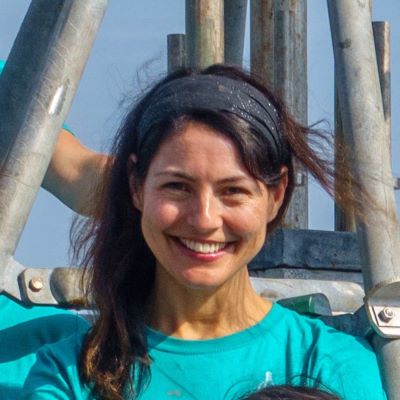 Leila Hamdan Leila Hamdan
Associate Professor
University of Southern Mississippi
Biography:
I am an Associate Professor in the School of Ocean Science and Engineering at the University of Southern Mississippi. I received a BS from Rowan University, and a MS and PhD from George Mason University. I began my career as National Research Council Postdoc at the Naval Research Laboratory where I was hired as a Research Scientist. After a decade of federal service, I left NRL for an appointment as an Assistant Professor and Associate Director of the microbiome research center at GMU. My experience in civil and academic sectors provides me perspective into the interests across the CERF membership. My work focuses on the impact of human activities on microorganisms, with focus on biogeography in coastal sediments, and features that shape and change aquatic microbiomes. I have been AERS President, Treasurer, and Student representative, CERF Secretary, Education Committee Chair, CERF 2015’s Program Committee Chair, and am Co-Chairing CERF’s 2019 Biennial Conference. I am an Associate Editor for Biogeochemistry and Limnology and Oceanography. I have led or participated in oceanographic expeditions in every ocean and have been PI of research programs supported by NOAA, BOEM, DARPA and ONR. In 2018 I received the National Oceanographic Partnership Program’s Excellence in Partnering Award for leadership of a team of natural and social scientists on a study of artificial reefs. I came into my knowledge of coastal science through public education, and mentors who shared what they knew. Having grown up in one of the most populated urban areas of the US, removed from the coast and the natural world, I remind myself daily that my career is an improbable gift. I wish to see the improbability decrease for others like me; as CERF President-elect I would work towards that goal.
Statement:
In the 20 years I have been a member, CERF has consistently supported my career growth through interaction with volunteers in Federation service. I first volunteered as a student because a Board member saw promise in me. I learned volunteers breathe life into CERF, and gained deep understanding of CERF’s membership recruitment, conference visioning, and Federation operations work. I have come back time, and again as a volunteer, to give my ideas in exchange for lessons in leadership. Past CERF Presidents shaped my leadership style and enabled me to explore my voice and vision. But CERF can’t rely only on promise, or a hope that volunteers will emerge, complete with an understand the costs and rewards of service. If elected, I will work with the Board to develop leadership mentoring programs for all career stages to engage and train future volunteers, and provide members with leadership skills that can benefit our federation, and their home institutions. I envision instruction at conferences and through electronic means in individual and collective leadership, and workshops to reveal how CERF operates, and how the Board balances change, opportunities and our mission. I would enter this idea, and the role of President with an intentional goal of expanding participation of underrepresented groups in leadership. This could be a step towards a future where all members have role models to represent and support their aspirations and help them explore their own vision. Though it will take planning and dedication to implement, I believe it is a worthy endeavor for the longevity of CERF and the future of estuarine and coastal science.
|
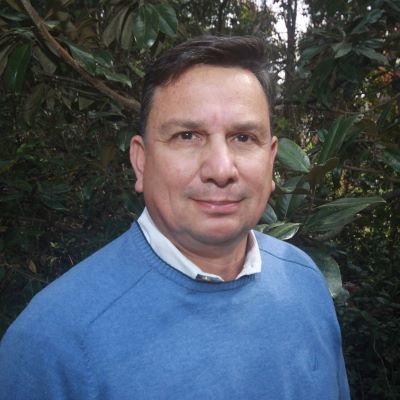
Enrique Reyes
Professor
East Carolina University
Biography:
I’m a coastal ecosystem scientist with a Ph. D. from LSU and over the past 25 years I’d been intrigued on how coastal areas respond to diverse impacts, natural and man-made. My interests as an applied scientist are to explore opportunities that meet coastal needs for climate-related decision support enhancing communication with coastal managers and policy makers for more extensive incorporation of human dimensions into existing regional ecosystem models and coastal simulations with the aim to build groundwork for the development of an integrated socio-ecological model.
My academic experience lies on large-scale approaches to ecosystem analysis. I have been active in several modeling efforts that span from plant productivity, fish migration, medium-sized experiments, to landscape simulation focused on understanding processes in wetlands and tropical watersheds. I have participated on several multidisciplinary teams in the development of ecosystem models to assess different approaches to coastal resource management. I have the fortune to worked in diverse coastal and estuarine environs, from the Everglades working as a post-doc at Chesapeake Biological Lab to the wetlands of Louisiana to now in East Carolina University working on the wetlands and pocosins of North Carolina. I have been a member of CERF since 1989 and served as CERF Secretary from 2013–15.
Statement:
The two themes expressed in CERF’s Visions IV are a legacy of the previous strategic plans and overall have not changed in the last 30 years since I’d been a member. Promote research, communication and management and, support a thriving collaborative community for education are solid foundations for our Federation. What has changed and needs to continue to evolve is how to increase the effect they have on our community. In my opinion the next steps for Federation are to integrate, to respond and to represent.
To integrate in our Federation, we should continue to recognize our members’ diverse backgrounds and work towards a true representation of our society. Great strides have been taken from recent initiatives (Rising TIDES) to long-established programs like the CERF Inclusion Lunches, steadily we are creating a more inclusive environment and better representation from those in the minority.
To respond, our Federation must continue with our commitment to provide service and value to our members. CERF provides a forum for intellectual exchanges and is, a source of information and education. We need to do more and more comprehensibly. In coordination with our affiliate societies, CERF should continue to present alternatives for faster and in-depth response to membership concerns.
CERF has consistently been a leader representing and being an advocate for our membership at National and International Forums. Either individually or in collaboration with other scientific societies, our opinions and concerns need to be presented and a guarantee that CERF to represent membership consensus is critical for the relevance of the Federation.
We should produce new opportunities and implement strategies (as recognized in Visions IV) that coalesce our vision by expanding membership, fomenting participation, and offering education and diversity opportunities to our membership.
|
Secretary
|
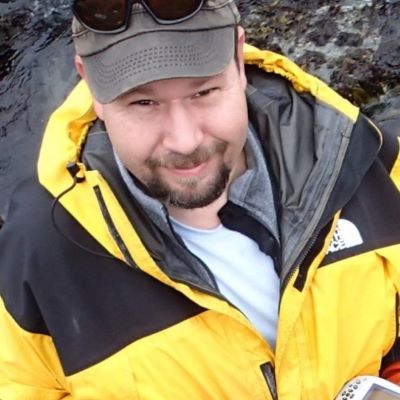
Jason Stutes
Senior Marine Ecologist
GeoEngineers
Biography:
I am a estuarine ecologist with over 19 years of experience in nearshore habitat characterization, impact analysis in marine ecosystems, and use of quantitative techniques to answer applied questions. I have participated in a wide variety of research activities, including nearshore habitat characterization, establishing long-term baseline datasets, food web characterization, and construction of carbon and nitrogen budgets for estuarine settings. My primary expertise is in benthic ecology, particularly with seagrass and macroalgal communities. I have spent my career becoming well-versed in nearshore/marine habitats in a variety of ecosystems with particular emphasis on their function and ecosystem services. I have worked across a diveristy of geographic areas ranging from near freshwater embayments in the Baltic, rocky intertidal along the coasts of Maine, to turbid estuaries along the northern coast of the Gulf of Mexico, urbanized estuaries in Puget Sound, and high amplitude tidal systems in Alaska. I feel this diversity of expereince and geography gives me a sense of perspective that will benefit the CERF board as we broaden our membership and inclusivity. My current research and professional interests are broad, but generally center on large-scale ecological questions in the face of major nearshore development and industrial use. I am most interested in how changing landuse patterns/nearshore development affects our nearshore biomes, particularly our estuaries. This is especially important as we consider topics such as resilience and climate change when desiging our investigations.
Statement:
I first joined CERF (then ERF) as a student in the late ‘90’s and have always appreciated the emphasis on including students at all levels within the organization. CERF has provided me a valuable platform for not only sharing science, but also networking with other professionals who are working on similar issues. I feel very strongly in returning the favor to the next generation of estuarine practitioners which is why I would like to serve the board in the capacity of secretary. I have previoulsy served on the CERF board for 2 years as an affiliate president as well as member of the editorial board for CESN. While this was an incredible expereince for me, I still feel that I have much more I can contribute to the organization with my continued involvement on the board. My goals for future service on the board include strengthening the bond between the affliates and CERF as we enter a new era in supporting and providing greater value to our members. This includes promoting CERF sponsored topical workshops focused on regional coastal issues that would benefit scientists, students, and resource managers. I am also currently working with CERF leadership on developing a federation sponsored profession certification program for nearshore practitioners to provide recognition to early career professionals for excellence and relevance in their field.
|
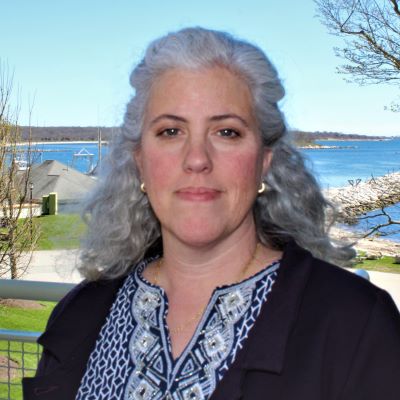
Jamie Vaudrey
Assistant Research Professor
University of Connecticut
Biography:
My research interests are in the area of ecosystem dynamics in the coastal zone, specifically in the effect of land-use on the coastal environment and how anthropogenic changes to the landscape may change our coastal ecosystems. Understanding and communicating the relationship between human activities and expression of eutrophication in large estuaries and small embayments is critical to addressing water quality and habitat degradation in a changing world. I have worked on modeling the relationship between nitrogen input and hypoxia in Narragansett Bay and on developing a model relating nitrogen load to trophic status in Long Island Sound embayments. Seagrass systems, another focus area, are sensitive indicators of a desirable state of water quality. I have been involved with a variety of seagrass projects throughout New England, including assessing genetic diversity of eelgrass, evaluating restoration projects, and developing a model to assist with the siting of restoration.
My involvement with marine science began at Wellesley College, where I received a B.A. in Biology with a minor in Philosophy and had the opportunity to conduct a senior research project at the Wells Estuarine Research Reserve in Maine. Following college, I entered the field of science education, working for New Hampshire Audubon as a naturalist; at The Newfound Harbor Marine Institute in Big Pine Key, FL as the Intern Coordinator; and as the Oregon Area Manager for Science Adventures. I completed my Ph.D. in Oceanography at the University of Connecticut in 2007 and worked as a Postdoctoral Associate on two separate projects, one on seagrass in Long Island Sound and one developing an ecosystem model of hypoxia in Narragansett Bay. In 2010, I started my current position with the Department of Marine Sciences, University of Connecticut. I am currently on the management team working to establish a NERR in Connecticut. My service to CERF includes serving on the Board as an Affiliate Representative for NEERS and as the Scientific Program Committee Chair for CERF 2017.
Statement:
I was introduced to CERF by my mentor roughly 20 years ago and was welcomed into the science community by colleagues throughout the Federation and particularly by my affiliate society, New England Estuarine Research Society (NEERS). CERF has provided the opportunity to engage with colleagues; explore topics beyond my expertise; and become involved with a community of scientists, managers, and educators seeking to protect and better understand our coastal zone. These aspects of CERF are at the heart of why I care about the Federation and what I would seek to preserve and improve upon as Secretary. Digital tools allow us to be more connected, and CERF should continue to utilize these tools to provide services to our members, such as educational opportunities and remote access to select conference activities. While the digital era allows us greater access to content, in-person connections are also vital to developing a community and fostering collaborations. My involvement with NEERS as the President and in my ongoing role as Webmaster have highlighted the benefit of meeting with people twice a year to share ideas and progress. The CERF Governing Board provides the conduit for better linking affiliate societies together, for greater exchange and to improve operations at the affiliate level. Beyond the duties of Secretary, my focus will be working with CERF and the affiliates to expand services to members, foster greater connection among the community, and increase membership. My experience with the governance of NEERS, my time on the CERF Governing Board as an Affiliate President, and my role as Scientific Program Committee Chair for CERF 2017 coupled with my background in communication and research have prepared me to meet these goals.
|
Student Member-at-Large
|
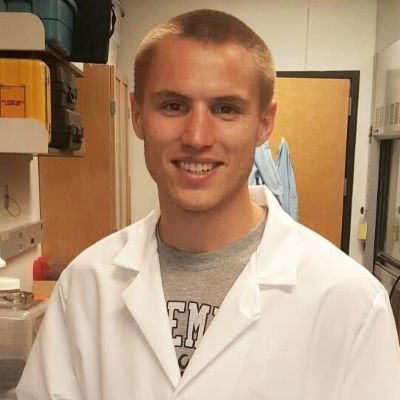
Derek Detweiler
Ph.D. student
Virginia Institute of Marine Science
Biography:
I am a Ph.D. student in the Department of Biological Sciences at the Virginia Institute of Marine Science, William & Mary. I hold two B.S. degrees in Marine Biology and Oceanography and a M.S. degree in Marine Science from the University of North Carolina Wilmington. My research experiences have taken me from barrier islands and saltwater marshes in North Carolina to cypress swamps and mangrove forests in the Florida Everglades. I am broadly interested in how human activities influence the role of estuaries, wetlands, and coastal environments as critical ecosystem service providers through the study of their biogeochemistry. Much of my research has involved using lipid biomarkers and stable isotopes to trace sources of carbon to estuarine systems impacted by agriculture, urban development, and altered hydrology. These techniques help determine the quantity and quality of organic matter that contributes to primary productivity, to resource availability for primary consumers, and to overall ecosystem functionality. My current Ph.D. work addresses the biogeochemical mechanisms driving the proliferation of harmful algal blooms in the lower York River estuary of the Chesapeake Bay watershed in order to identify and guide targeted mitigation efforts for future blooms. Outside of research, I am an active member of the Graduate Student Association, Society for Women in Marine Science, and participate in community service events such as regional science fairs, National Ocean Sciences Bowl, and public outreach. I have also taken great pride in mentoring students as a passionate formal and informal STEM educator.
Statement:
When I attended my first CERF conference as a Master’s student, it was not my first scientific meeting. However, it turned out to be my favorite conference and the one I now look forward to the most. What drew me in was the Federation’s organization, leadership, and preparedness. Moreover, the resources and events provided for students was a gateway for excellent networking opportunities and student comradery. To me, CERF was a safe space and a family.
As a candidate for Student Member-at-Large, I want to ensure that fellow students, and especially first-time attendees, continue to have that same experience. Therefore, I envision serving CERF’s student members by effectively communicating student needs and being an active liaison to the Governing Board. I hope to build upon current student opportunities, especially those which promote inclusiveness, empathy, and self-care in the coastal and estuarine sciences. Throughout my time as an undergraduate and graduate student, I have been involved with programs that aim to serve underrepresented groups such as people of color, women, and those in the LGBTQIA+ community that may be adversely impacted by institutional, political, or mental barriers. I believe that CERF is progressive in their mission towards inclusion as seen with initiatives stemming from the Rising TIDES (Toward an Inclusive, Diverse, and Enriched Society) program, including action plans that promote safe and welcoming CERF conferences. I believe these initiatives are incredibly valuable, and I would commit to enhancing these efforts. These might include special workshops on self-care in graduate school or the development of a more targeted mentorship program that pairs students with mentors based not only on research interests but also on shared personal experiences. Overall, my primary goal as the next Student Member-at-Large would be to represent the student community in a way that fosters personal and professional growth for all of its members.
|
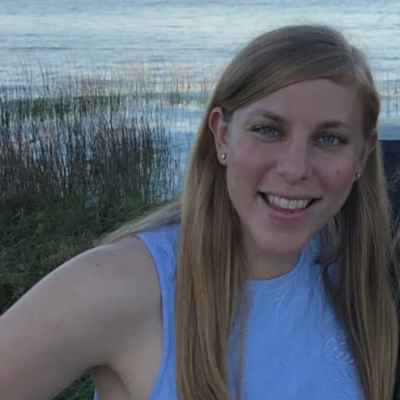
Meredith Diskin
M.S. Student
Dauphin Island Sea Lab
Biography:
My passion for the marine sciences began from a very young age, often fueled by my snorkeling adventures where I became curious as to how ecosystems shape their communities. I attended College of Charleston for my Bachelor’s in Marine Biology, where I interned for the Marine Mammal Stranding Network and NOAA’s Marine Animal Health Program. It was here that I became fascinated with coastal wetlands, but it wasn’t until I attended Texas A&M University – Corpus Christi for my first Masters degree in Biology that my fascination blossomed into a deep aspiration to protect and preserve coastal ecosystems. As a graduate student in the Marine Ecology lab working under Dr. Lee Smee, I studied how mangrove populations are expanding due to a warming climate and how this impacts surrounding salt marsh communities. I found differences in fish, crab and shrimp populations between salt marshes with and without nearby mangroves, suggesting that mangroves influence surrounding wetland communities. This led me to hypothesize how mangroves are influencing salt marsh communities, a question I’m working towards answering during my second Master’s degree at the Dauphin Island Sea Lab in Alabama. In addition to my studies, I have been awarded the Texas Sea Grant Grants-in-Aid Research Grant as well as the Link Foundation Fellowship, which allowed me to conduct two studies at the Smithsonian Marine Station in Florida. When I’m not mucking around in the salt marsh, I enjoy hiking and camping, watching football games and baking delicious treats for my lab.
Statement:
I am excited to be running for the position of Student Member-at-Large for the CERF Governing Board. My connection with CERF began when I attended the CERF meeting in 2017, where I learned the importance of networking with individuals in other fields or affiliations. Over the years as a graduate student, I have seen, first-hand, graduate students make great strides progressing their young careers; I have also seen how vital marine organizations, like CERF, have been in this progression. I have a desire to continue this positive trend and work with others at CERF to make more opportunities available to graduate students so they may be successful in their careers. As your Student Member-at-Large, I will create more networking and job search opportunities for current and future graduate students. I believe that creating a lasting networking support system early in a graduate’s career can make a significant difference in their future success as a scientist, and also lay a foundation for future collaborations. I plan on serving as a spokesperson for graduate students and early career scientists, and help the Governing Board increase the opportunities for networking and mentorship programs within CERF. Our ability to progress coastal and estuarine research can improve greatly if we work hard to network and collaborate with scientists from all levels and affiliations, exposing us to new views and perceptions. I hope you all trust in my ability to effectively represent my fellow graduate students as your Student Member-at-Large and thank you for your consideration.
|
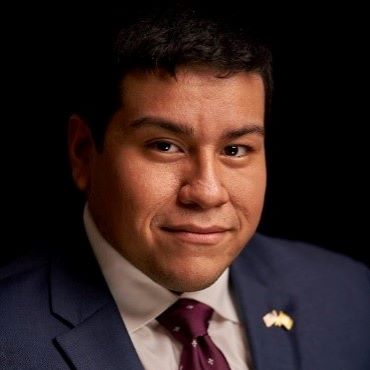
Johnny Quispe
Ph.D. Student
Rutgers University
Biography:
Johnny Quispe is a doctoral candidate at Rutgers University in the Graduate Program of Ecology and Evolution. Mr. Quispe uses interdisciplinary approaches to address issues related to climate change, coastal ecology, and coastal resilience. His research integrates social, economic, engineering, and natural systems to make coastal communities resilient to natural disasters and climate change.Through his research Mr. Quispe is investigating the effects of sea-level rise to coastal wetlands, identifying migration opportunity zones for marsh migration, and exploring ways to mitigate damages from future flooding and hurricanes through the use of nature/natural based defenses. Mr. Quispe works to connect and reconnect communities with their shorelines, especially in low-income inner cities where communities might not have access to waterfronts and do not have the opportunity to interact with surrounding waterways.
Over the past few years, Johnny interned at the New Jersey Department of State and the Office of the Lieutenant Governor, New Jersey Future, and at the U.S. Environmental Protection Agency Region 2 Headquarters. Johnny was a Rutgers University Coastal Climate Risk and Resilience Fellow ’17-‘19, Science Explorer Fellow ’18-‘19, New Leaders Council Fellow ’18 a recipient of the Ecological Society of America’s Katherine S. McCarter Graduate Student Policy Award ’18, an Eagleton Institute of Politics Felllow ’17. Johnny is currently a board member on the Lower Raritan Watershed Partnership and a UCAR Next Generation Public Policy fellow. He is committed to bridging the gap between science and decision making and is planning for a carrer in science policy.
Statement:
Hello CERF! I want to thank you for considering me for the Student Member-at- large position for our next Governing Board. I am eager have the opportunity give back and serve on this board after attending my first CERF meeting in 2017 as a Rising TIDES recipient. I believe that my academic and professional experiences have sufficiently prepared me to serve on this board and represent our student members and their needs.
If elected to this position I plan to work with the rest of the Governing Board to prioritize the following items:
- Provide additional opportunities to increase STEM diversity and retention within our society
- Provide professional development, training, and networking opportunities for students and early career professionals interested in careers fields outside of academia
- Build upon the achievements and successes of our prior Governing Board in developing science communication training and opportunities
Thanks again for your consideration and I look forward to serving and representing the members of this society to the best of my ability. If you have any questions please feel free to reach out to me at [email protected].
|
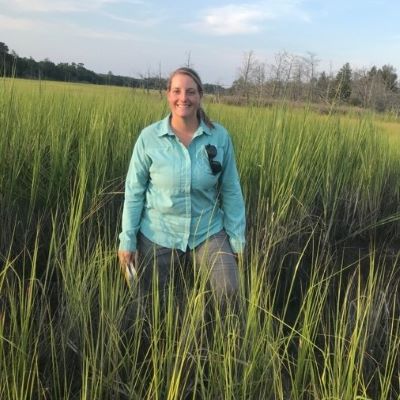
Serina Wittyngham
Ph.D. Student
Virginia Institute of Marine Science
Biography:
“I always wanted to be a marine biologist growing up!” is something I hear often when mentioning my profession. After all, dreams of swimming with dolphins and frolicking with fish fill the minds of youth everywhere. I too had these ideas about what it meant to be a marine biologist until my first field experience during my undergraduate work at Florida International University. They say you never forget your first love, but in the realm of seagrass and saltmarsh ecology, it’s really “you never forget your first mud.” Seared into my memory is that first step I took into a seagrass bed. Reality set in as I sank to my hips in mud: despite those early ambitions, this was going to be my definition of what it means to be a marine biologist. I was hooked! Following that opportunity, I worked at Mote Marine Laboratory and then Florida Gulf Coast University on understanding the interactions of invertebrates and vegetation, solidifying my interests in aquatic plant ecology. I continued this line of research for my Master’s at San Francisco State University (SFSU) studying abiotic effects on submerged aquatic vegetation traits. At the Virginia Institute of Marine Science (VIMS), under the supervision of Dr. David Johnson, my doctoral research is focused on how plant defense strategies against herbivory can affect saltmarsh resilience in the face of sea level rise. My entry into the world of aquatic plant ecology has been anything but graceful – but my past experiences and current research have allowed me to delve deeper into my love for the scientific method.
Statement:
My first CERF meeting was as a Master’s student in 2015. It was only the second professional meeting I had ever attended, and the first meeting I had ever presented at. I had finished my preliminary analyses and printed my poster at the last possible minute and was nervous to share my project with so many esteemed scientists. One of the many reasons I would like to serve CERF is because of the warm reception I received at that meeting. The feedback on my project was constructive and given in earnest. I immediately felt accepted and as if the CERF community was truly invested in my success. This initial reception has made all of the difference in fostering my sense of belonging in a career where imposter syndrome looms over us all. As a current member of the CERF membership committee and as the potential student member-at-large, I hope to continue working with the governing board and other CERF committees to develop creative ways to enhance that sense of belonging, especially at the student and early-career scientist level. Graduate school and job searching can often feel isolating, and I’d like to extend the support and sense of community beyond the biannual meetings. Potential mechanisms for this could include a peer-to-peer mentoring program, meet-up events based on discipline or career stage, or other avenues that create a direct line of communication and support between CERF scientists.
|
Member-at-Large (two positions)
|
|
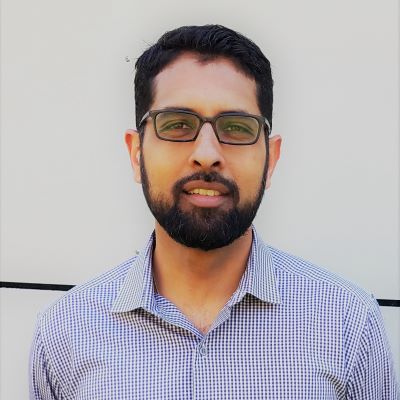 Neil Ganju Neil Ganju
Research Oceanographer
US Geological Survey
Biography:
I am a research oceanographer at the U.S. Geological Survey, Woods Hole Coastal and Marine Science Center. I grew up in Miami and my childhood experiences gave me an early appreciation of shallow water: I fished in the canals that drain the Everglades, snorkeled at John Pennekamp State Park, canoed in Florida Bay, and went slough-slogging in Big Cypress Preserve. I went to the University of Michigan intending to be a structural engineer, but midway decided I wanted a greener pathway, and switched to environmental engineering. After graduating from Michigan, I studied the Loxahatchee River estuary for my M.S. in coastal engineering at the University of Florida. I then took a position at the USGS in California, working on sediment transport in San Francisco Bay. After a few years, I started a PhD program in civil engineering at UC-Davis while employed by the USGS, and continued studies of sediment transport in San Francisco Bay. My work in the Bay ranged from observations of tidal-timescale flocculation dynamics to modeling of decadal-timescale geomorphic change. After graduating, I transferred to the USGS in Woods Hole, and after a couple years of inner-shelf modeling I made it back to the estuary. I am currently the chief of the Estuarine Processes, Hazards, and Ecosystems Project, leading a team that is tackling interdisciplinary problems including merging physical and biological models in estuaries, developing national coastal change hazard products, and quantifying wetland vulnerability to physical forcing.
Statement:
The problems we face on the coast require interdisciplinary solutions. One cannot understand physical processes without considering biological influences, nor understand biological processes without considering physics. As a member of CERF's board, I will bring this interdisciplinary perspective to the organization in three areas:
- Make our science more visible: We are often buried in research and forget how our science has improved coastal management and preservation, and sometimes have difficulty applying lessons learned in one estuary to another. CERF can develop stories that highlight successes in translating basic research into applied tools. With these stories CERF can connect scientists and stakeholders, and increase the visibility and support for estuarine science.
- Make our science more actionable: Many decision-making tools are implemented without a clear connection to recent advances. CERF can serve as a clearinghouse to help decision makers evaluate appropriate tools by connecting the tools to state-of-the-art research and updated knowledge.
- Prepare our scientists for the present and future: Estuarine scientists need a broad skill set to access the best techniques. For example, there are time-series and model data repositories that are underutilized, despite their availability. CERF can facilitate their use with hands-on workshops/webinars, and connecting members with those repositories through the CERF website.
CERF has fostered my most fruitful interactions with scientists, coastal managers, and especially students, through both the conferences and the journal. I hope to serve on CERF’s board so I can contribute to an organization that has given me so much. Thank you for your consideration.
|
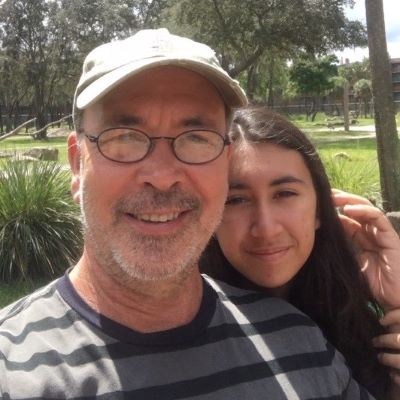
Chris Madden
Lead Scientist
South Florida Water Management District
Biography:
Chris Madden received his undergraduate degree in Ecology at Cornell University and a Master’s and Ph.D. in Oceanography and Coastal Science at LSU. He has engaged in research in many unique coastal ecosystems in the world including the Atchafalaya delta, Chesapeake Bay and the Everglades, among the world’s most critical environmental restoration projects. After a Postdoc at Horn Point and a Fulbright Fellowship in the Yucatan, he became Lead Scientist at SFWMD. Madden’s research is focused on nutrients and primary production, ecosystem modeling and human-natural systems. He is passionate about the importance of science education, supporting developing students and scientists (a two-way street), proudly serving on the STEM Education Council of the Palm Beach School District, 10th largest in the nation, as a longstanding partner in the CERF mentor program; and a participant in the NSF-CERF Rising Tides and LTER network mentorship projects. He has long supported the CERF mission, as a member of the journal task force for Estuaries and Coasts, in assisting Program development for the 2011 CERF conference and by currently serving on the CERF Publications Committee. He co-developed of the FGDC Federal standard for classifying and organizing the nation’s coastal systems and data, the Coastal and Marine Ecological Classification Standard (CMECS), and the US EPA framework for Numeric Nutrient Criteria for US coastal waters. He developed the Dataflow water quality mapping tool. His youngest daughter was born unexpectedly during (but not at) the Norfolk CERF conference coastal mapping workshop he convened—exactly during his opening introduction.
Statement:
From my first ERF conference at Virginia Beach, I fell in love with this group of unique, passionate, out-of-the box, artistic, wild, brilliant estuarine scientists. Diverse backgrounds from university, agency, NGO, private sector estuarine ecologists are gathered in a society that over the years has grown into a mature and powerful organization. One that has come to bear responsibility for more than mere pursuit of research interests, but for saving earth’s coastal systems. A CERF mission element is science in support of stewardship of coastal ecosystems. In other words, asking research questions and answering them is not enough- extending those answers to a real-world context in the public sphere is now critical. We as a group are at the tip of the spear in areas of climate change, SLR, coastal and wetland habitat loss, degradation of environmental services, and lack of public awareness of the foundational importance of coastal ecosystems. The society asks that each member of CERF be more than just a scientist- but also a translator, a communicator, an educator, a mentor, a policy whisperer, speaking up and speaking truth, because of the turning point at which we find ourselves. I would like to give back some of what this society has given to me by helping us achieve those goals.
|
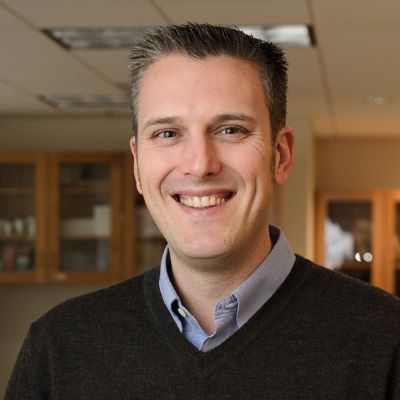
Thomas Mozdzer
Associate Professor
Bryn Mawr College
Biography:
I am an Associate Professor of Biology at Bryn Mawr College and a Research Associate at the Smithsonian Environmental Research Center (SERC). My research focuses on the effects of anthropogenic activities on coastal wetland ecosystems, including coastal eutrophication, elevated atmospheric carbon dioxide, and invasive species on coastal ecosystem processes and resilience. I am particularly interested in how wetland foundation plants are evolving and adapting to anthropogenic stressors and what this means for ecosystem function and resilience.
I received my B.S. in Biology from Fairfield University, Fairfield CT, and then was a Fulbright Scholar at the Jagiellonian University in Krakow, Poland. I completed both my M.S. and Ph.D. in Environmental Sciences at the University of Virginia, Charlottesville, VA. My postdoctoral research was conducted at the Smithsonian Global Change Research Wetland of the Smithsonian Environmental Research Center, Edgewater, MD, where I continue to lead a long-term global change field experiment.
Statement:
I have considered CERF my professional home since my first CERF meeting as a graduate student in 2003. As a Member-at-Large on the Governing Board, I will work to involve existing members in the society and increase the number of new members, focusing on students and early-career scientists. As an early-career scientist, I will serve as a liaison to the next generation of CERF members. I will promote diversity and inclusion in CERF by contributing to the development and growth of the Rising TIDES Mentoring Program. Furthermore, I will be committed to increasing the participation and retention of underrepresented students, as I have done with my undergraduate lab group. Working with the Governing Board, I will seek to provide early mentoring opportunities and to build support networks within our society.
I am excited about the prospect of taking on a leadership role in CERF. As a scientific society at the front lines of rising seas and other anthropogenic changes, there is growing need for CERF members to communicate science effectively to inform policy, reach stakeholders, and translate our findings to the public. I will work to build initiatives that improve science communication, thereby increasing the relevance of our scientific community, improving society membership, and forging stronger relationships with members of the coastal communities in which we conduct our research.
|
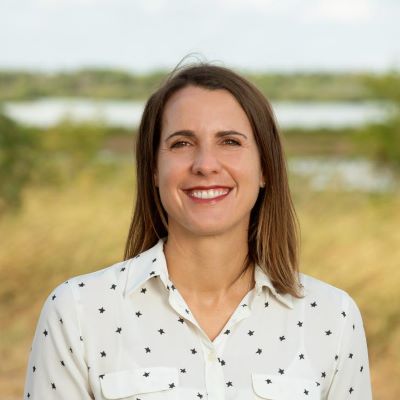
Jennifer Beseres Pollack
Associate Professor
Harte Research Institute, Texas A&M University - Corpus Christi
Biography:
I have been a CERF member since 2003 and I currently serve as co-chair of the Scientific Program Committee for the 2019 CERF Conference in Mobile. I am the Chair of Coastal Conservation and Restoration at the Harte Research Institute for Gulf of Mexico Studies (HRI) and an Associate Professor of Marine Biology in the College of Science and Engineering at Texas A&M University-Corpus Christi (TAMU-CC). My goal as an applied marine ecologist is to provide science-based information to support resource management and habitat conservation efforts. I am particularly interested in assessing the proficiency of restored habitats in ameliorating the effects of habitat loss and restoring ecological functions. My research has a strong field component, and I have spent countless hours among oyster reef, salt marsh, Serpulid worm reef, and offshore oil platform habitats. I am also happy sharing my science with the public, especially through our bi-annual community-based restoration events where volunteers create new reef using reclaimed shells from our “Sink Your Shucks” oyster shell-recycling program. I received my B.A. in Environmental Science from Northwestern University in Evanston, Illinois, and my M.S. and Ph.D. in Marine Science from the University of South Carolina, where I studied the role of penaeid shrimp predation on subtidal macrobenthic populations in tidal creek systems. My postdoctoral research was with Dr. Paul Montagna at HRI, where I investigated the effects of freshwater inflow on estuarine fauna, until starting as an Assistant Professor at TAMU-CC in 2011.
Statement:
I am excited about the opportunity to continue to serve CERF beyond the 2019 conference as a member of the Governing Board. CERF has been my professional home since graduate school, and I look forward to supporting its tradition of being a welcoming space for students and early career scientists. I first attended CERF (then ERF) as a graduate student in 2005 in Norfolk, VA. I appreciated the encouragement and support I received from established members to continue in science and to become a part of the CERF family. Today, CERF carries forward this tradition of unconditional support and inclusivity among its membership in the Visions IV Strategic Plan, seeking to develop a broader, more diverse, and more inclusive society for the benefit of all members. Toward this end, I would be happy to contribute my experience in supporting young women and underrepresented minority students in science.
As my time as co-chair of the Scientific Program Committee for the 2019 CERF Conference draws to an end, I am excited about the opportunity to continue to serve CERF as a member of the Governing Board. I draw inspiration from our conference theme of “Responsive | Relevant | Ready”, a call for continued and collaborative engagement among the diversity of CERF scientists and stakeholders to be prepared to solve emerging problems in coasts and estuaries. I would be grateful for the opportunity to build upon the myriad CERF successes—greatly advancing our understanding of estuarine and coastal ecosystems—to chart a path toward lasting solutions.
|
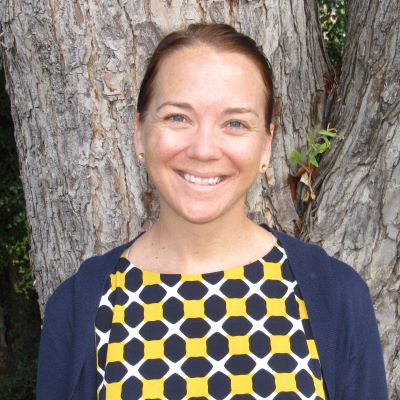
Kristin Wilson Grimes
Research Assistant Professor
University of the Virgin Islands
Biography:
My research examines human impacts to nearshore environments, including coastal wetlands. It actively engages communities in the U.S Virgin Islands and beyond, on a wide range of topics, from beach water quality, to how invasive species affect blue carbon storage, to marine debris accumulation on sandy beach and mangrove shorelines, to community disaster preparedness for hurricanes. I am also the Director for the Virgin Islands Water Resources Research Institute, a network of 54 institutes across the United States dedicated to water resource issues and education funded through partnerships between the United States Geological Survey and the states/territories; in this role, I am 1 of 7 women directors, presently. Before joining the faculty of the University of the Virgin Islands in 2015, I was the Research Coordinator at the Wells National Estuarine Research Reserve in Wells, ME one of 28 NOAA-supported sites across the U.S. that protect coastal ecosystems through research, stewardship, education, and community partnerships. I hold a BA in Biology and Environmental Studies from Middlebury College and MS and Ph.D. degrees in Marine Biology, Marine Policy, and Ecology and Environmental Science from the University of Maine.
Statement:
I have dedicated my professional career to understanding coasts and the physical, ecological, and human forces that shape them. Because of this, I am passionate about efforts that will shape the future of coastal science and its communities, including this opportunity to serve on CERF’s Governing Board. I have been a long-time member of CERF and its affiliate societies: my first NEERS Meeting was in Spring 2008 as a graduate student and my first CERF conference was in 2009 in Portland, OR. I am proud to say I am a past NEERS Stickleback Award winner. Currently, I am a Research Assistant Professor at the Center for Marine & Environmental Studies at the University of the Virgin Islands, a Historically Black College & University and the only institution of higher learning in the territory. There, I conduct management-relevant, coastal science research, teach in the Masters of Marine & Environmental Science program, engage in community outreach and education (most recently on the topics of marine debris (PI, NOAA Award # NA16NOS9990133) and hurricane preparedness (PI, NOAA NA18SEC0080010)), and work toward increasing the diversity of underrepresented and underserved groups in the marine sciences (NSF INCLUDES, PI, Award #1649300; NSF NRT-INFEWS, Co-PI, Award #1735222). I am also a contributing member of the CERF’s Broadening Participation Council and assisted in revisions to CERF’s 2017-2022 Strategic Plan and development of CERF’s Rising TIDES (Toward an Inclusive, Diverse & Enriched Society) mentoring program which debuted in 2017. As a Member-At-Large for CERF, I look forward to supporting CERF in its work to achieve the goals laid out by its 2017-2022 Strategic Plan, especially those that seek to build greater diversity, equity, and inclusion within our Society.
|
|

 Leila Hamdan
Leila Hamdan






 Neil Ganju
Neil Ganju


